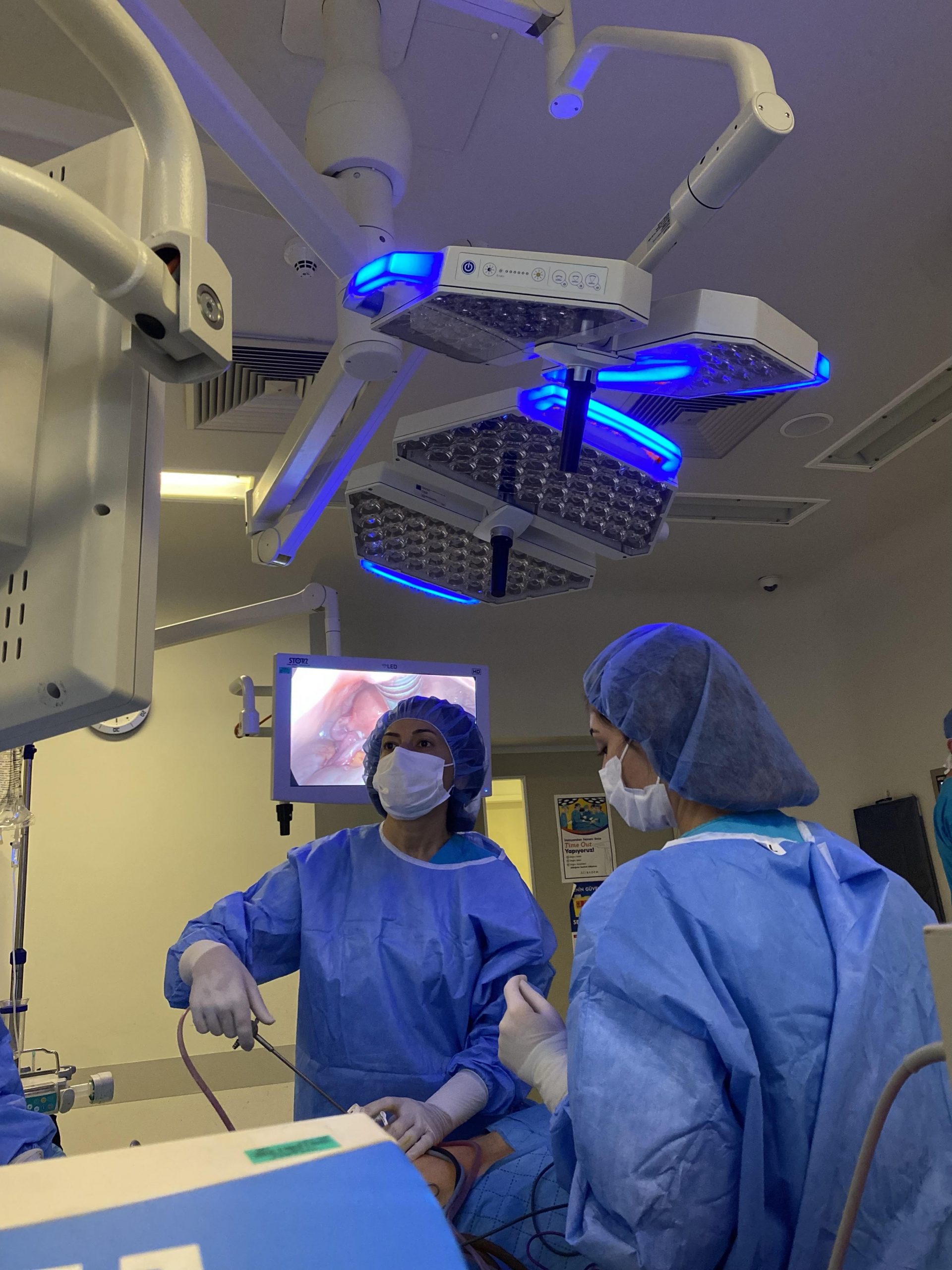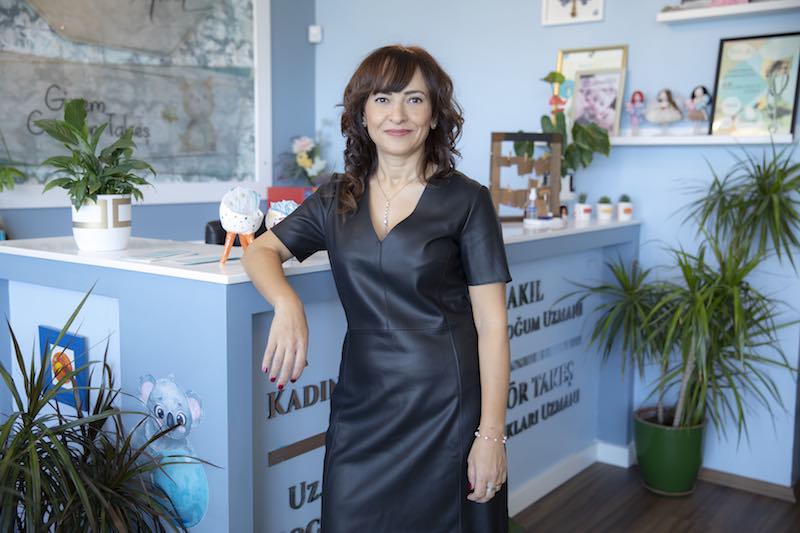Laparoscopy is a surgical method that allows us to perform operations in the abdominal cavity and pelvis without making large incisions on the skin. It is also known as minimally invasive surgery. It is called “closed surgery” because the abdomen is not cut but only pierced.
The laparoscope is an elongated tubular system; It consists of a light source extended through small holes drilled in the abdomen and a camera that transmits images of the abdomen to a television screen. The surgery is performed with thin and long instruments sent through these small holes.
Laparoscopy has many advantages over traditional open surgery; the most important of these is shorter hospital stay and faster recovery time; It is also advantageous to have less pain and bleeding and much smaller scars after the operation.


Laparoscopy is both a diagnostic and therapeutic method that can be used in a wide variety of conditions developing in the abdomen or pelvis. Gynecology is one of the most widely used branches. For example, it is successfully applied for both diagnosis and treatment in cases of pelvic inflammatory disease, endometriosis (chocolate disease and cyst), ectopic pregnancy, ovarian cysts, fibroids, infertility, unexplained pelvic pain or abdominal pain. The definitive diagnosis of most gynecological cancers is now made laparoscopically and surgery is performed. Uterine removal surgery (hysterectomy) is also successfully performed with closed surgery in most cases.
Laparoscopy is a commonly performed procedure and serious complications are rare. The most common minor complication is minor bleeding and bruising around the entry hole. Serious complications include vascular or other internal organ injuries such as bowel or bladder, which are
seen at a rate of one in a thousand, and these need to be corrected by surgical intervention.
Depending on the type of laparoscopic procedure performed, you will usually be asked not to eat or drink anything for 6 to 12 hours beforehand. If you are taking blood thinners such as aspirin, you may be asked to stop a few days in advance.
When starting laparoscopy, first a small incision of approximately 1-1.5 cm is made, usually next to the belly button. A tube is inserted through this incision and carbon dioxide gas is given through the tube to inflate the abdomen. Inflating the abdomen allows the internal organs to separate and become visible, thus opening the space for the surgery to be performed. Then, an instrument called laparoscope is inserted through this tube. The laparoscope transmits images to a television monitor in the operating room, giving the surgeon a clear view of the entire area. Other surgical instruments can be inserted through the small incisions made in the lower part of the abdomen, and the surgeon
performs the operation with the help of these small instruments by looking at the image from laparoscope. After the operation is over, the gas in the abdomen is evacuated, the opened incisions are closed with thin sutures that dissolve on their own. If this is a diagnosed laparoscopy, it usually takes 30-60 minutes. It takes longer in an operation for therapeutic purposes. Laparoscopy is performed under general anesthesia, so you will not feel any pain during the procedure. Depending on the type of case, you may need to stay in the hospital for one or more nights, and sometimes you can go home the same day.
After laparoscopy, you may feel dizzy and nauseous as you recover from the effects of the anesthesia. These are common side effects of anesthesia and pass quickly. Close monitoring is required for several hours until fully awakened and able to eat, drink and urinate. Before discharge, your doctor will give you information about how to dress and when you will come for control.
For a few days after the procedure, you are likely to experience some pain and discomfort where the incisions were made, and you may also have a sore throat due to the breathing tube placed in your throat for anesthesia. You can use pain relievers to relieve the pain. Some of the gas used to inflate your abdomen may remain inside after the procedure, causing bloating, cramping or shoulder pain that lasts for several days. All of these symptoms go away within a few days.
Recovery time after laparoscopy is different for everyone. In diagnostic laparoscopy, you can usually
resume your normal activities within 5 days. Recovery time after laparoscopies done to treat a condition depends on the type of treatment. Depending on the extent of the surgery, you can usually return to your normal activities between two days (for example, simple cysts) and one month (cancer surgery).